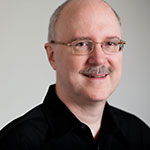
Education
Jeffrey Chappell received his M.M. in Piano Performance from Peabody Institute and B.M. from the Curtis Institute of Music, where he was a scholarship student of Leon Fleisher at the Peabody Conservatory and Eleanor Sokoloff at the Curtis Institute. His early studies were conducted in St. Louis, Missouri, under the tutelage of Jane Allen. Jeffrey has participated in the Stanford Jazz Workshop at Stanford University and the Advanced Musical Theater Workshop sponsored by Broadcast Music Incorporated in New York City.
Performance and Teaching Experience
Jeffrey has performed throughout the United States and abroad in recitals and in chamber music. He has been a soloist with the symphony orchestras of Philadelphia, St. Louis, Pittsburgh, Houston, Denver, Indianapolis, Oakland, Baton Rouge, and Key West, as well as the Chamber Orchestra of Albuquerque, the Missouri Symphony, and the Mississippi Symphony. His many appearances with the Baltimore Symphony Orchestra include concerts at Carnegie Hall and Wolf Trap Park, as well as a substitution for Claudio Arrau playing the Brahms Second Concerto to critical acclaim. Many of his recitals and concerto performances have been heard on nationwide radio broadcasts. He has toured South America with recitals in Brasilia, Rio de Janeiro, Caracas, and Surinam, and has given concerts with orchestras in Mexico City, El Salvador, and Quito. In Europe, he has performed in France, Belgium, and the Czech Republic, and in Asia, he has performed in Japan and Indonesia. He has appeared at summer music festivals in the United States, including Marlboro, Chautauqua, Spoleto, Ambler, Bedford Springs, and Tidewater, and in France at the Music at La Gesse Festival and the Musique d’été Festival. He has performed at the Stanford Jazz Festival and the Key West International Jazz Festival as a pianist. He appeared at the East Coast Jazz Festival as a conductor of the Goucher College Jazz Ensemble and the Levine School of Music Jazz Ensemble. He has also led the Levine School of Music Jazz Ensemble in performance at Washington, D.C. venues including Carter Barron Amphitheater, the Folger Library, the National Building Museum, the Ronald Reagan Building, and Union Station.
Jeffrey is Director of Jazz Studies at Goucher College in Baltimore. He has served on the faculties of Catholic University of America, Frederick Community College, and the Baltimore School for the Arts. He was director of the Goucher Summer Arts Institute Jazz Camp for fourteen years. He was a guest lecturer and a graduate assistant at Peabody Institute. He has given master classes nationally and internationally, including training for music teachers through numerous chapters of the Music Teachers National Association, as well as through Music Everybody, a weekend seminar series that he founded.
An award-winning composer, his solo piano composition American Sonata won the Keyboard Magazine Soundpage Competition, and the Mid-Atlantic Chamber Orchestra commissioned Shadowdance for piano and wind ensemble. At the same time, he was their composer-in-residence, with a grant from the Meet The Composer Foundation. His solo piano works can be heard on Pick It Up and Jazz Sonata, which was recently released on the Centaur label.
As a recording artist, Jeffrey made the world premiere recordings of the Piano Concerto by James Grant and The Dream Wanderer by Sotireos Vlahopoulos. He has recorded on the Telarc, Centaur, Albany, Petrichor, MSR Classics, and MMC labels.
Jeffrey was a member of the Lenox Ensemble, a DC-based improvisation group of classical musicians, and has frequently improvised piano accompaniment for silent films at the National Gallery of Art.
As a contributing editor for Piano & Keyboard Magazine from 1994 to 2000, Jeffrey reached an international readership with his feature articles and reviews. His writing has also appeared in Clavier Magazine and Clavier Companion Magazine.
At Levine
Jeffrey has been on the Levine faculty since 1992, where he teaches jazz piano.
Teaching Philosophy and Approach
“I place importance on the goals of the student and on approaches to problem-solving that are adapted to each individual. Of course, there are things that every pianist needs to know how to do, and my students must accomplish those. However, in a broader sense, I teach the development of human potential through music. That means making free, informed choices from an array of options, as opposed to learning just one way to do something, like performing a trick. My job is to introduce students to an increasing number of options to choose from. Then they cultivate freedom and move in the direction of mastery.”
More About Jeffrey
When not teaching, performing, or composing, Jeffrey designs apps for iPhone/iPad, including Melody Star, a music app. He is the author of Answers From Silence, an internationally bestselling book about spirituality.